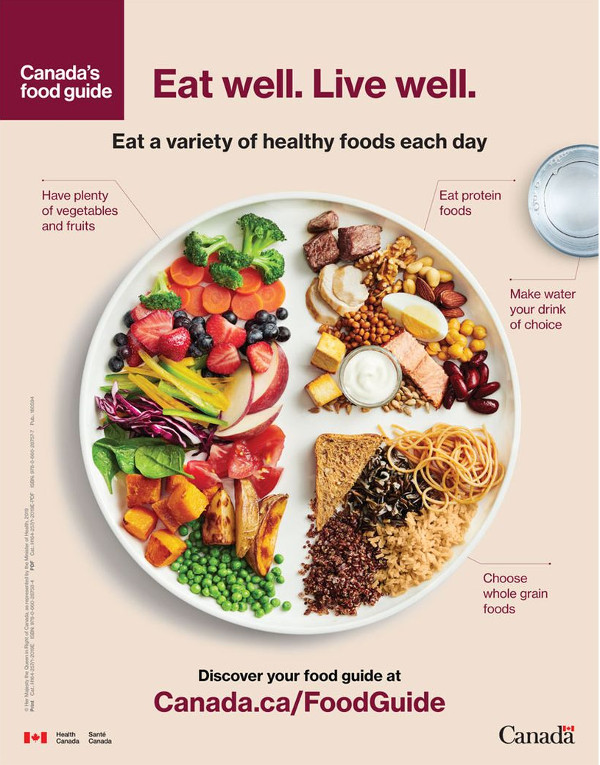We all know that dietary issues can effect the risk of developing a wide range of cancers. But now, researchers from Tufts University have performed a data mining operation on a massive data base and quantified the effects of poor nutrition on cancer incidence in specific demographic groups…
 The latest edition (2019) of Canada’s Food Guide recommends that half of your
The latest edition (2019) of Canada’s Food Guide recommends that half of your
dinner plate be covered with fresh Fruits and Veggies, and a further
one quarter be occupied by Whole Grain products. Only
one quarter should be taken up by Proteins.
But that’s an expensive way to eat…
What they did
Researchers estimated the intake of the 7 major dietary factors by examining the data from the U.S. National Health and Nutrition Examination Survey cycles of 2013-2014 and 2015-2016, surveys of self-reported daily food intake by massive numbers of participants. Then, they compared those findings with cancer incidence data for 2015 recorded by the Centers for Disease Control and Prevention’s National Program for Cancer Registries and the National Cancer Institute’s Surveillance, Epidemiology, and End Results program.
Using methodology from the World Health Organization’s Global Burden of Disease (GBD) project, they extracted estimates of the proportion of all cancer cases that can be attributed to sub-optimal diet in each age, gender, and race/ethnicity demographic category.
What they found
Findings showed that:
- Colorectal cancer had the highest proportion of diet-related cases, with 38.3 percent of all cases in 2015 associated with suboptimal diets.
- Low whole grain intake was associated with the largest number and proportion of new cancer cases, followed by low dairy intake, high Processed Meat intake, low Vegetable and Fruit intake, high Red Meat intake, and high intake of Sugar-sweetened Beverages.
- Of the diet-associated cancer cases, approximately 16 percent were attributable to obesity-related pathways.
- Men, middle-aged Americans (45-64 years), and some racial/ethnic groups (non-Hispanic blacks, Hispanics, and others) had the highest proportion of diet-associated cancers compared to other age, gender, or racial/ethnic groups
The takeaway
“Our findings underscore the opportunity to reduce cancer burden and disparities in the United States by improving food intake,” said Study First Author Fang Fang Zhang.
The study is a part of the Food Policy Review and Intervention Cost-Effectiveness (Food-PRICE) research initiative, a U.S. National Institutes of Health-funded collaboration aimed at identifying cost-effective nutrition strategies to improve population health.
My take
I know I keep harping on this, but I’ll gladly point out that all the aforementioned data processing hocus-pocus has once again confirmed my long-held belief that, if we want to improve folks’ diets, we’ll not only have to get them interested in better-quality, more nutritious foods, but make those foods more affordable for those in lower income brackets or on fixed incomes, such as Seniors. There’s been a lot of talk about these issues, but – at this time, at least – there isn’t much being about them.
~ Maggie J.

